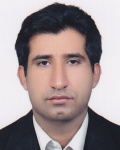| نویسندگان | Mohammad Navaz Rasoulizadeh - Jalil Rashidinia- |
|---|---|
| نشریه | Journal of King Saud University - Science |
| شماره صفحات | 2277 |
| شماره مجلد | 32 |
| ضریب تاثیر (IF) | 3.819 |
| نوع مقاله | Full Paper |
| تاریخ انتشار | 2020-03-10 |
| رتبه نشریه | ISI (WOS) |
| نوع نشریه | الکترونیکی |
| کشور محل چاپ | عربستان سعودی |
| نمایه نشریه | JCR-Q2 |
چکیده مقاله
When the number of nodes increases more than thousands, the arising system of global radial basis functions (RBFs) method becomes dense and ill-conditioned. To solve this difficulty, local RBFs generated finite difference method (RBF-FD) were introduced. RBF-FD method is based on local stencil nodes and so it has a sparsity system. The main goal in this work is to develop the RBF-FD method in order to obtain numerical solution for the Kawahara equation as a time dependent partial differential equation that appears in the shallow water and acoustic waves in plasma. For this purpose, we have discretized the temporal and spatial derivatives with a finite difference, h-weighted, and RBF-FD methods. Then by applying the collocation technique at the grid nodes, a system of linear equations is obtained which gives the numerical solution of the Kawahara equation. The stability analysis is given. The efficiency and accuracy of the proposed approach are tested by four examples. In addition, a comparison between proposed method and the methods, RBFs, differential quadrature (DQM), cosine expansion based differential quadrature (CDQ) and modified cubic B-Spline differential quadrature (MCBC-DQM) is shown.
